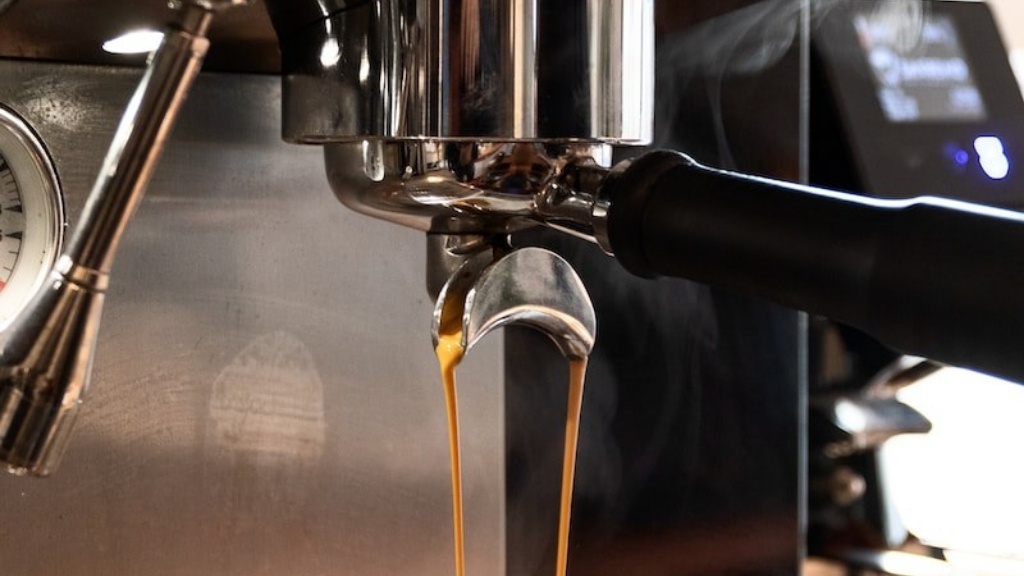The procedure of wisdom teeth removal may sound simple but it is actually a complex procedure. It is often done to prevent infections, overcrowding, or damage to other teeth. After the removal, the area needs to heal and may take a few days to fully recover. So, can you drink coffee after wisdom tooth extraction?
Coffee contains caffeine, which is a diuretic and can lead to dehydration. It also has an acidic quality which may irritate the area around a recently extracted tooth and create more inflammation. Additionally, coffee may increase bleeding time, which is an important factor to consider after a dental surgery. Due to these factors, most doctors do not recommend drinking coffee the day after having a wisdom tooth removed.
However, this does not mean that you cannot drink coffee at all after the extraction. Dental surgery is a stressful event and having a cup of coffee to nourish your body may be beneficial. As long as prescribed medications are taken properly to avoid infections and excessive bleeding, it is okay to drink coffee 1 or 2 days after the extraction, as long as it is done in moderation. After about 1 week, you should be able to drink coffee or other beverages without any consequences.
In addition to radiographs (x-rays) and physical examinations, doctors may recommend CT imaging to accurately assess the situation and plan the best approach for wisdom teeth removal. Before carrying out the procedure, the dentist may discuss possible risks and give proper post-operative instructions, such as avoiding irritating foods and beverages (coffee in this case). Therefore, it is important to listen to your doctor’s advice during and after the surgery.
Ultimately, drinking coffee after wisdom tooth extraction should be decided based on the individual’s oral health, the specific procedure that was carried out, and possible risks. Consulting the dentist on this matter is the safest option and will help you minimize the chances of infection or prolonged healing times.
Pain Management After Wisdom Tooth Extraction
Pain is one of the most common side effects of wisdom tooth extraction. When the procedure is complete, the dentist will prescribe medications for the discomfort and to reduce inflammation. Taking these medications will help alleviate pain and make recovery easier.
Apart from prescribed medications, there are other ways to ease the pain. Over-the-counter painkillers and cold compresses applied directly to the affected area can help reduce swelling and manage discomfort. Additionally, drinking plenty of fluids can help keep the affected area clean, while avoiding activities such as smoking, drinking alcohol, and vigorous exercise may also help in reducing pain.
Many patients may experience pain several days after the extraction. If the pain becomes severe or if there is any excessive bleeding, a follow-up appointment with the dentist is necessary.
The Aftercare Procedure
It is important to follow the dentist’s advice to ensure a successful outcome. To avoid infections, the dentist may prescribe antibiotics to be taken for a few days after the extraction. Additionally, the dentist may prescribe painkillers to be taken regularly for a couple of days.
Keeping the mouth clean after wisdom tooth removal is key. Practicing good oral hygiene helps with healing and keeps food debris from getting into the empty socket. As the area heals, it is important to make sure that no food particles remain. If food particles get trapped in the socket, this may lead to infection. A simple method of maintaining a clean wound is to rinse it with warm salt water several times a day. This will also help reduce inflammation.
It is important to remember to eat only soft foods for a few days after the extraction and to avoid drinking from a straw, as this may cause increased bleeding.
Long Term Effects of Wisdom Tooth Extraction
Wisdom teeth extraction may have both short-term and long-term effects. Most of the short-term effects occur during the healing phase and depend on the individual’s oral health. Some of the common effects of wisdom tooth surgery include pain, swelling, stiffness of the jaw, dry socket, and minor bleeding.
The long-term effects depend on the individual’s overall oral health, the type of procedure, and post-operative care. In some cases, wisdom teeth removal may cause changes in the jawbone or even nerve damage. Additionally, some patients may experience changes in speech, which could lead to the need for speech therapy.
Therefore, some people may choose to keep their wisdom teeth and monitor them regularly, as this may reduce the risks of developing certain problems. Before deciding to have a wisdom tooth extracted, it is important to take into consideration the individual’s oral health and the type of procedure required for the removal.
Should You Have Wisdom Teeth Removed?
If a wisdom tooth begins to grow and causes pain, it may be a sign that it should be removed. In this case, consulting a dentist is highly advisable. It is important to remember that wisdom teeth can be an asset to one’s oral health and can be kept if their eruption is managed correctly.
If the dentist decides that it is necessary to remove the wisdom tooth, it is recommended to plan the surgery and prepare for the recovery period properly. This includes following the dentist’s advice, taking prescribed medications, and practicing proper care and good oral hygiene after the extraction.
Additionally, it is important to avoid drinking coffee and other irritating beverages during the healing process. As explained in this article, drinking coffee after wisdom tooth extraction may have an adverse effect and prevent the area from healing properly. Therefore, it is important to be careful with the beverages and foods you consume after the extraction.
Maintenance of Wisdom Teeth
Once the wisdom teeth have been extracted and the area has healed properly, it is important to maintain good oral hygiene habits in order to prevent future problems. This includes brushing, flossing, and using mouthwash regularly. It is also important to go for regular check-ups with the dentist in order to identify any potential problems early on.
It is advisable to maintain a balanced diet to ensure proper nutrition for the mouth and to avoid consuming sugary or sticky foods, as these can cause bacteria to develop. Additionally, it is recommended to replace your toothbrush every few months and to change the brush regularly as it could be a source of bacteria.
Ultimately, wise decisions on a person’s diet and oral hygiene habit can help promote a healthy outcome after wisdom teeth extraction. Following these good habits will ensure that the mouth remains healthy and that the area around the extracted tooth remains free of irritation and infection.





